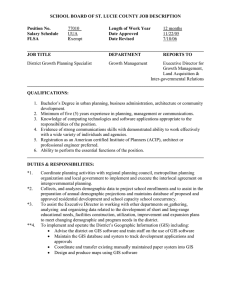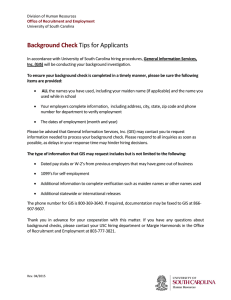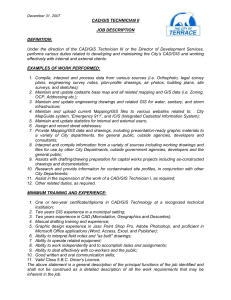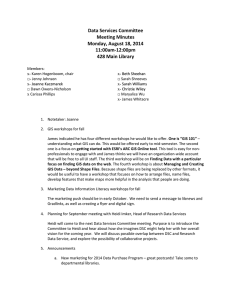Autodesk ER Solutions
advertisement
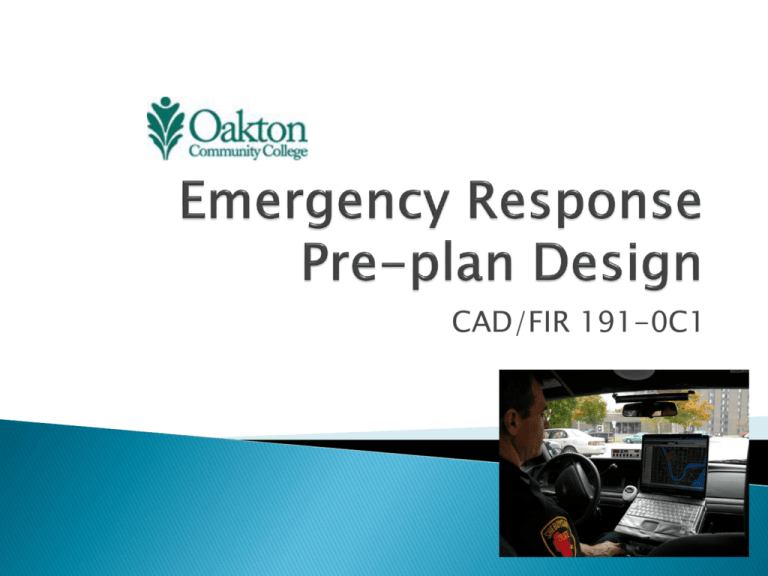
CAD/FIR 191-0C1 Rapid access to design and spatial data is critical for effective response: ◦ Facilities ◦ Critical infrastructure ◦ Employment or Occupant data tied to locations ◦ Base map “framework” data Billions of dollars have been spent on building these datasets. • Location-based information is crucial to emergency response and homeland security • Managers of all levels of government must effectively collect, analyze, and share geospatial data ◦ Fire ◦ Police ◦ Public Works ◦ Public Health ◦ Building and Safety ◦ Water ◦ Engineering ◦ Utilities ◦ All disciplines utilizing GIS software can extend the capabilities to managing and reducing the consequences of all forms of public and natural emergencies. ◦ A primary responsibility of any government is to provide safety and security for it citizens, communities, and assets. ◦ Improving response capabilities ◦ Identifying mitigation requirements ◦ Locating resources ◦ Assessing community risks ◦ Providing timely decision support ◦ Developing training scenarios ◦ Managing field data in real time ◦ Developing contingency plans ◦ Improving data sharing capabilities Skokie Campus Architectural Drawings are cleaned up (layers removed) Symbols are added to the floorplan. •Knox Box •Fire Hydrants •Electrical Service •Gas Shutoff •Alarm Panel Aerial Photo – Enhanced using CAD for Planning purposes Occupancy reports and other database information can be incorporated into the plan. Digital Photographs can be linked to the pre-plan Interior Building Details can be linked to the overall pre-plan Interior Detail with Room Numbers Plans can be used for Incident Command • Location based information in critical • Many departments can take advantage of GIS data • Aids First Responder Efforts • GIS data for planning and analysis • Modern tools for First Responders Autodesk Emergency Response Solutions


